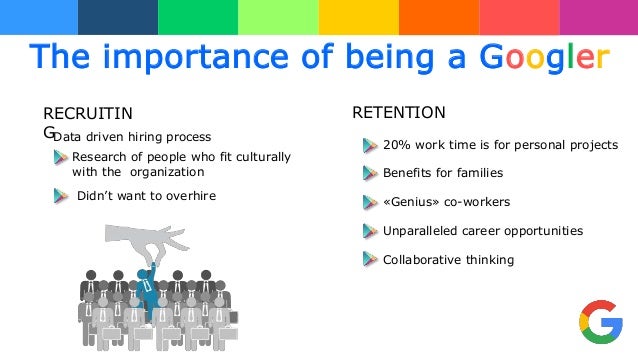Online free global competitions. Win Student Competitions, Challenges, Contests, Awards, Prizes, in business, management, design, arts, architecture, photo, fashion, engineering, computer sciences,...
Tuesday, 19 September 2017
Google : Kick Start | Path to being Googler
Tuesday, 5 September 2017
Wipro Earthian 2017
Introduction
What the Wipro earthian 2017 edition is about
Participate
in Urban Sustainability Reporting with Wipro earthian 2017!
·
Waste
·
Mobility
With an increasing
population and a fast growing economy, the demand for water is increasing.
However, issues of distribution, access, pricing and quality, plague our urban
water management. The problem of water management in the urban context is
essentially centered on assessing needs, managing demand, ensuring equitable
and quality access.
·
Examples
TCS Open Ignite - Fasttrack Career / Micro Degrees
If you are a science student looking for an IT career,
you have come to the right place. Here you can learn everything
that the IT industry expects a fresh IT aspirant to know.
That too, for free.
Open Ignite is your gateway to a TCS career.
To join click the following link : https://openseesame.tcs.com/Oauth/socialLogin?app=201&scope=openignite_profile&redirect_url=http://openseesame.tcs.com/ignite/oauth
TCS Open Ignite
micro-degrees
Tuesday, 4 April 2017
SCHNEIDER ELECTRIC COMPETITION
Go Green in the City 2017
It is the 7th edition of the ultimate global student competition
Connect with Schneider Electric
Compete no matter where you are
Tuesday, 14 March 2017
Microsoft Imagine -Hello cloud Activity two!
Create a database driven photo sharing website in the cloud with Hello Cloud Activity Two!
You are one of thousands of students across the globe that has registered for Hello Cloud and a chance to win $1,000! To enter the sweepstakes you have to complete one or more Hello Cloud activities, the newest of which we describe below. Every activity you complete gives you another chance to win $1,000. You only have to do each activity once to have your name in the $1,000 sweepstakes month after month!Now on to our newest activity:
Activity Two: Azure Web Apps Lab
The Azure Web Apps Lab includes exercises where you will build a PHP website with Visual Studio Code, provision a MySQL Web App in Azure, and deploy the website to your Azure subscription.
What is this project about?
Create a database driven photo sharing website in the cloud! Azure App Services is a set of services provided by Microsoft Azure to enable developers to easily build and deploy Web apps and mobile apps for various platforms and devices. Included in the App Service family are Azure Web Apps, which allow you to quickly and easily deploy Web sites built with tools and languages you’re already familiar with; Azure Mobile Apps, which provide data services, syncing services, notification services, and other back-end services for popular mobile operating systems; Azure API Apps, which simplify the writing, publishing, and consuming of cloud APIs; and Azure Logic Apps, which are great for automating business processes. In this lab, you will use the cross-platform Visual Studio Code editor to build a Web site that uses PHP server-side scripting. The site will allow you to upload, browse, and display photos, and it will store photos in a MySQL database. You will then provision a new Azure Web App to host the site. Finally, you will upload the site’s content to the newly provisioned Web App and view it in your browser.
What Technologies will I use?
This activity integrates a PHP coded website and a MySQL database with a web app hosted in Azure App Services. You will build out the PHP code, provision the MySQL App in Azure, and deploy the website to your Azure subscription. No prior experience with PHP, databases, or web development is required. To complete this activity you need a Microsoft Account, an Azure Subscription, and Visual Studio Code.
How do I participate?
Download and unzip the lab tutorial and open the Azure Web Apps HOL file. You will learn some basics about building a PHP website with Visual Studio Code and connecting it to MySQL database services. You can access links to additional content in the lab if you want to dig deeper. When you’re ready, copy the web app URL and paste it into our Hello Cloud Activity 2 submission field from your Imagine account page.
Good luck with the newest Hello Cloud activity! Our next drawing is on March 29th, 2017 so submit your completed Activity Two to double you chances to win and join the ranks of the Hello Cloud winners!
Wednesday, 8 March 2017
APPATHON Competition for Android App developer
Sunday, 5 March 2017
Ericsson Innovation Awards 2017- Last Registration date 12 March 2017
Ericsson : FUTURE OF FOOD COMPETITION
Register
What’s in it for you?
- First prize: EUR 25,000
- Second prize: EUR 10,000
- Third prize: EUR 1,000
Wednesday, 11 January 2017
CODECHEF JANUARY CHALLENGE
Tuesday, 29 November 2016
Microsoft Imagine Cup 2017
Imagine Cup
Thursday, 17 November 2016
Cloud 20/20 quiz and project competition
Cloud 20/20 Year 8 offers for aspiring participants : Student Innovation Projects (SIP). Under SIP, engineering students will be required to submit project ideas around the latest disruptive trends. This contest is open to research students, post-graduates, as well as engineering students in Computer Science, Information Technology, and other related fields. Registrations for Cloud 20/20 closes on December 31st, 2016. The winning teams stand a chance to win prizes amounting to INR up to 4.25 lakhs. Additionally, they will also get an opportunity to intern and explore career opportunities with Unisys.
Prerequisite
3rdand Final year CSE students.
2. a Quiz competition We will need teams of 2 to be formed with as many teams as possible (no restrictions on the numbers of teams). Top 8 teams will get Unisys Certificates. Top 3 teams will get Amazon Gift Coupons (1st Prize: 5K Amazon Gift coupon, 2nd Prize: 3K Amazon Gift Card and 3rd Prize: 2K Amazon gift Card, along with Unisys Certificates).


